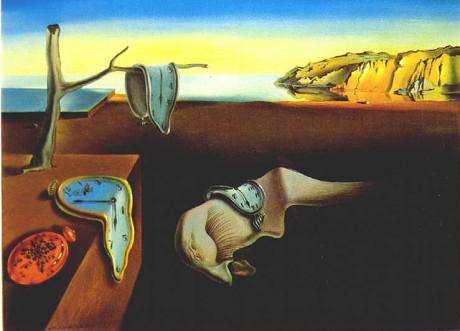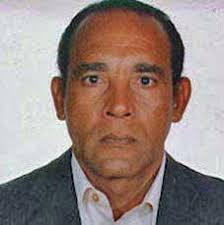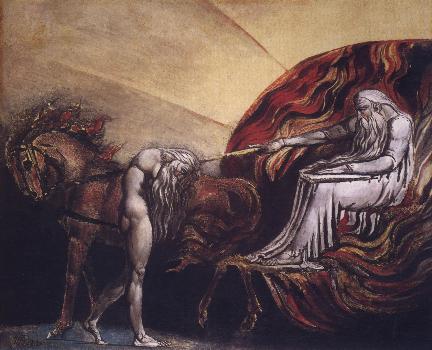
Image: Dios juzga a Adán, de Blake
Only three years have transpired since the inception of a new politico-administration for revolutionary Cuba, where supposedly we all believe everyone is create equal, when, in 1978, there is born to the special municipality of Isla de la Juventud, Luis Alfonso Montero, who wonder over and over again why they replaced the name of the Isla de Pinos memorial, recognized by Cubans in memory of El Apóstol and where Jose Martí suffered the rigors of political imprisonment, along with many other Cubans.
Alfonso Montero, at the ripe old age of 29, continues against reason to love his Isla de Pinos. The boy with the sad face yet cheerful disposition remembers that his biological mother left there when he was 4 years old and his father at the time was already in prison.
As usually happens in these cases, the paternal grandparents took custody of the child and in their overindulgence, allowed the child to get away with everything. Even with school, he skipped classes again and again. It was fun for him first to start stealing carrier pigeons, later stealing bicycles and then horses.
He began to realize that while riding the horses through the countryside of the island, though he enjoyed the landscape, he was despising the damage his own actions were doing to him. At the age of 11, he was sent to study at a school for etiquette in his town.
It can be argued that, far from becoming re-educated, little by little he was turning into a monster of a person. By the time he was thirteen, his older friends had seduced him into smoking marijuana. For someone like Montero, always fascinated by the new and unknown, smoking marijuana was becoming more and more pleasurable.
At the age of 16, arrested for a quarrel with the police, he was sentenced to 3 years in prison for contempt and disobedience. He was incarcerated at Combinado del Este, a prison in the suburbs of the Cuban capital, though he was merely a child. He found himself, beyond comprehension, in one of the biggest prisons in the country made to house 6 thousand prisoners, in maximum security.
At this point, Luis Alfonso Montero begins committing one crime after another, from attempted murder to facial disfigurement. Already he would never be free, at least from prison. And Montero is one of those prisoners that believes in jail you must be ‘bold and violent’, especially if you are jailed young, otherwise ‘you become prey to any number of predators, some of which will sodomize you and take you as a lover’.
From there, as the story goes, in June of 2004, while sunbathing together with other prisoners on the patio in the courtyard of Quivicán prison, he took advantage of a whole in the guards’ watch, escaped in a garbage container and had now become a wanted fugitive.
He refused to give himself up, despite the continued requests from his mother, who up to this time had remained in contact with him, as she no longer has any influence over him. It is curious that, when his grandparents died, she tried to get back into his life but it was too late. Much too late.
Luis Alfonso commits egregious misdeeds all over Cuba, from its very tip to its bottom, East to West. Every time someone asked him his name, he would use a false identity. He had heard of doing this nonsense once in prison, but it was actually working in real life!
On May 7th, 2008, the fugitive dream ended for this misbegotten young man. He was apprehended by the police in Ciego de Ávila, riding a bicitaxi that had he had stolen from the area around the bus terminal.
He was accused of armed robbery and intimidation, spent one week under further investigation and finally confessed to his false identity and a string of other crimes committed after his escape.
And so he was returned to that world he so hated, though because of his actions, a world that had become his mistress: jail. Again, Luis had a devilish plan. During his time on the run, in the province of Matanzas, he had met a homosexual, a confessed AIDS patient, a man with whom he had had sexual intercourse.
He planned on contracting the disease and therefore being sent to a prison for HIV patients, where the living conditions where much better than in the maximum security prisons on the island. Even though the symptoms had not surfaced, several bloods tests confirmed he was ailing. He had no idea of the devastating consequences that came with having AIDS. Hopefully he didn’t pass it one to anyone else!
Sadly, the prisoners tell me, Luis Alfonso Montero is not the only one who has had this idea. Other preferred contracting tuberculosis as they are completely isolated and the food is less putrid. Only a truly sick person, who is truly unhappy with his life, would seek to contract AIDS.
Montero doesn’t have any children and doesn’t expect to have any either. He still has ten years left of his sentence and faces possible hanging. He doesn’t believe he will ever again see freedom from jail. All he sees is his uncertain and empty future and despises the Cuban Revolution for its cruelty.
On his body he has two distinctive tattoos: “Against Communism forever” and “I shit on the communist world”. He is forever marked by the abandonment of his mother, and he doesn’t believe he deserves to live anymore. He hates this world and would, then, rather die of AIDS.
Pablo Pacheco: Canaleta Prison.
June 14, 2009
Categories: General . . Author: voicesbehindbars . Comments: 1 Comment
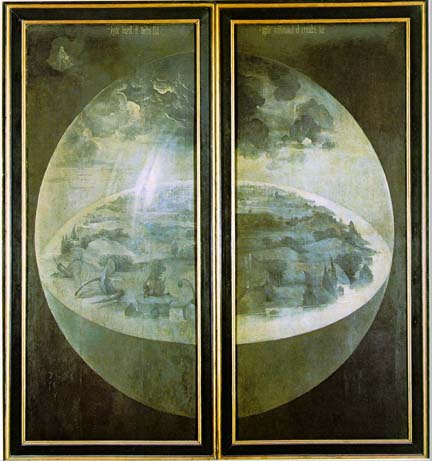
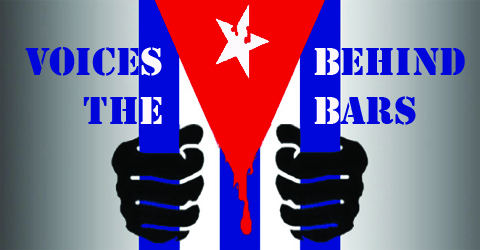

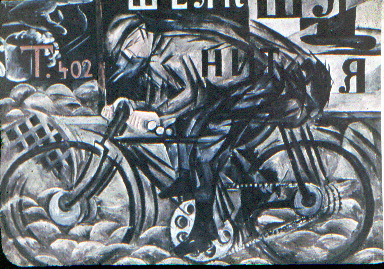
 Iamge: “Entracte” by Daumier
Iamge: “Entracte” by Daumier Image: Canasta de frutas de Botero
Image: Canasta de frutas de Botero